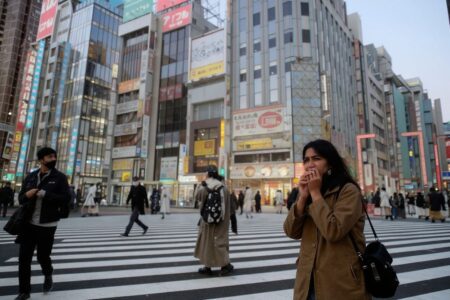
On Feb. 12, 2022, Japanese Prime Minister Fumio Kishida said the government is considering lifting travel restrictions to Japan for non-resident foreign nationals. Local reports say an announcement could be made as early as this week.
Kishida told reporters: “We will take into account the scientific knowledge we’ve gained about the omicron variant and changes in the infection situation both at home and abroad, as well as immigration measures in place by other countries.”
According to The Mainichi, the Japanese government is preparing to raise the cap on the number of people entering Japan from 3,500 per day to 5,000 from March.
This means the previously stringent travel restrictions to Japan – that have caused much frustration among internationals wanting to enter the country – could be eased, with business travellers and students accorded first priority.
During a Feb. 14, 2022 news conference, Chief Cabinet Secretary Hirokazu Matsuno said: “Having the strictest border measures among the G7 (major economies) has given us time to prepare for an increase in domestic Omicron cases. We are aware there are various requests, and are considering the issue with a view toward easing measures.”
Japan decided to implement strict border closures — which is set to expire at the end of February — in November 2021, when it experienced its first Omicron case.
 If you are an international student waiting to enter Japan, the latest relaxations on travel restrictions to Japan may be welcome news for you.
If you are an international student waiting to enter Japan, the latest relaxations on travel restrictions to Japan may be welcome news for you.
Can international students expect looser travel restrictions to Japan?
Quoting The Nikkei, The Japan Times said the government plans to begin accepting more than 1,000 people per day, and gradually raise the cap to several thousand, ahead of the border restriction expiration.
Schools and companies are expected to supervise their sponsored students and staff; upon arrival in Japan, they are encouraged to undergo self-isolation.
Short- and long-term business visitors can enjoy these looser travel restrictions to Japan too. Researchers, engineers and employees providing a “public benefit” are given top consideration for entering Japan.
The quarantine period for travellers arriving in Japan may be shortened to three days instead of seven. Both Japanese and foreign nationals should prove they have already received a vaccine booster and have tested for the virus, to qualify for this reduced time period.
The government anticipates making the compulsory paperwork and screening process easier too.
Separately, Davide Rossi, the executive director of Open the borders to safe study in Japan Association that helps support international students and workers stranded outside Japan, tweeted that while more proposals and discussions on the relaxed travel restrictions to Japan will take place this week, details have yet to be finalised. This includes who can enter, and what incoming students would exactly need to do or know come March.
“Some of the language schools we are in touch with, suggested we ask our language students to try to contact the Prime Minister’s Office of Japan to share the impact the border situation has had on them so they have that information while they are making their final decision,” said Rossi in a Twitter thread.
The announcement on the easing of travel restrictions to Japan would be welcome news for many aggrieved students who have been waiting to enter Japan for the past two years. The government’s effort to control the pandemic through its rigid border closure has been largely criticised worldwide.
International students, technical intern trainees and others who have been affected by the travel ban have been airing their grievances on social media, including via the #JapanTravelBan and #EducationIsNotTourism hashtags on Twitter.










